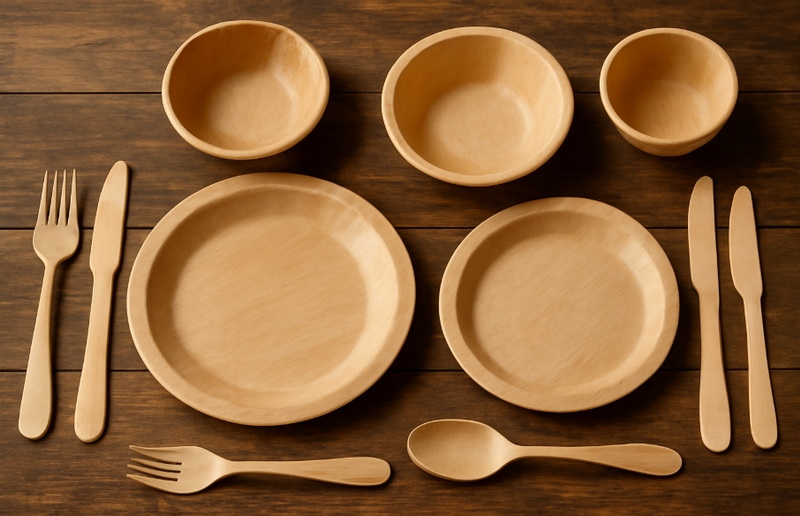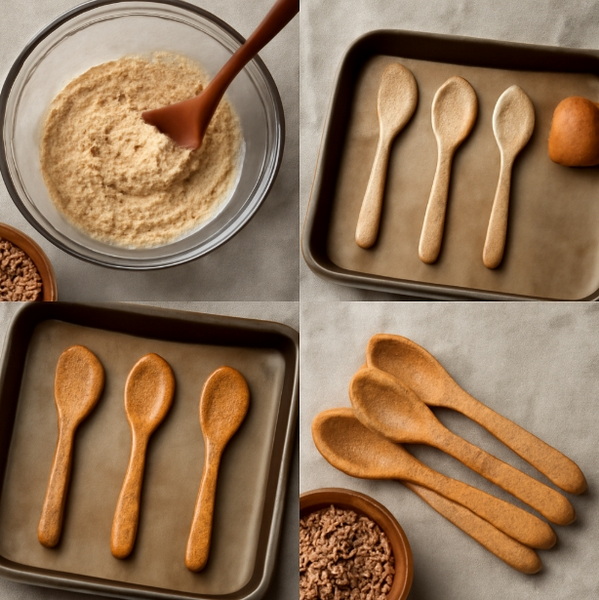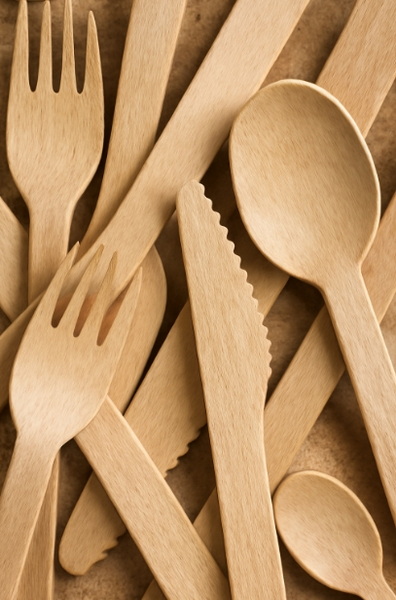
Content Menu
● The Environmental Impact of Wooden Disposable Tableware
>> Sustainability and Resource Use
>> Biodegradability and Compostability
>> Reduction of Plastic Waste
>> Lower Carbon Footprint
● Health and Safety: Wooden vs. Plastic Tableware
>> Absence of Harmful Chemicals
>> No Microplastics
>> Food Safety and Hygiene
● Practical Advantages of Wooden Disposable Tableware
>> Sturdiness and Functionality
>> Convenience and Versatility
>> Low Thermal Conductivity
>> No Need for Washing
● Aesthetic and Social Appeal
>> Natural and Elegant Appearance
>> Promoting Eco-Conscious Values
● Challenges and Considerations
● Conclusion
● FAQ
>> 1. What is wooden disposable tableware made from?
>> 2. Is wooden disposable tableware safe for food use?
>> 3. Can wooden disposable tableware be composted at home?
>> 4. How does wooden disposable tableware compare to plastic in terms of environmental impact?
>> 5. Are there any disadvantages to using wooden disposable tableware?
In a world increasingly focused on sustainability and personal well-being, the decision between wooden disposable tableware and plastic alternatives has become more important than ever. Whether you are planning a wedding, organizing a picnic, managing a restaurant, or simply striving to make more eco-friendly choices at home, understanding the benefits of wooden disposable tableware can help you make informed decisions. This comprehensive article explores the reasons why wooden disposable tableware is a superior choice over plastic, covering environmental, health, practical, and aesthetic aspects.

The Environmental Impact of Wooden Disposable Tableware
Sustainability and Resource Use
Wooden disposable tableware is made from renewable resources such as birch, bamboo, or other fast-growing woods. Unlike plastic, which relies on non-renewable fossil fuels, wood is a naturally replenishable material. Responsible sourcing ensures that the production of wooden tableware supports sustainable forestry practices. Many manufacturers utilize wood from managed forests or repurpose veneer waste from other industries, minimizing environmental impact.
Biodegradability and Compostability
One of the strongest arguments for choosing wooden disposable tableware is its ability to break down naturally. While plastic can persist in landfills and oceans for centuries, wooden tableware is both biodegradable and compostable. Under suitable conditions, it decomposes within months, leaving behind no toxic residues or microplastics that could harm the environment or wildlife.
Reduction of Plastic Waste
Plastic pollution is a global crisis, and single-use plastics are a major contributor. By opting for wooden disposable tableware, individuals and businesses can significantly reduce their plastic footprint. This simple change helps prevent plastic waste from accumulating in landfills and waterways, supporting a cleaner and healthier planet.
Lower Carbon Footprint
The production of wooden disposable tableware generally requires less energy compared to plastic manufacturing. In addition, trees absorb carbon dioxide as they grow, helping to offset some of the emissions associated with harvesting and processing. When disposed of properly, wooden tableware can even have a negative global warming potential, further reducing its environmental impact.
Health and Safety: Wooden vs. Plastic Tableware
Absence of Harmful Chemicals
Plastic tableware often contains chemicals such as BPA, phthalates, and other toxins that can leach into food, especially when exposed to heat. These substances have been linked to various health issues, including hormonal disruptions and increased cancer risk. Wooden disposable tableware, by contrast, is typically free from harmful chemicals, coatings, or dyes, making it a safer choice for both adults and children.
No Microplastics
With growing concern over microplastics entering the food chain, choosing wooden disposable tableware offers peace of mind. Unlike plastic, wood does not break down into microplastic particles, eliminating the risk of ingesting these harmful fragments through food or drink.
Food Safety and Hygiene
Wooden disposable tableware is designed for single use, which minimizes the risk of cross-contamination and the spread of germs. The natural antibacterial properties of some woods add an extra layer of safety, making wooden utensils a hygienic option for food service and personal use.
Practical Advantages of Wooden Disposable Tableware
Sturdiness and Functionality
Wooden disposable tableware is known for its strength and durability. Unlike flimsy plastic utensils that can snap under pressure, wooden forks, knives, and spoons are sturdy enough to handle a wide range of foods, from salads to steaks. They do not melt or deform when used with hot dishes, making them suitable for both hot and cold meals.
Convenience and Versatility
Wooden disposable tableware is lightweight and easy to transport, making it ideal for outdoor events, catering, picnics, and parties. Its versatility extends to various forms, including plates, bowls, cutlery, and skewers, catering to diverse dining needs.
Low Thermal Conductivity
Unlike metal utensils, wooden tableware does not conduct heat efficiently. This means the handles remain cool, reducing the risk of burns when serving hot food and enhancing user comfort.
No Need for Washing
As single-use items, wooden disposable tableware eliminates the need for washing, saving water and energy. This is particularly advantageous in large gatherings or commercial settings where time and resources are limited.

Aesthetic and Social Appeal
Natural and Elegant Appearance
Wooden disposable tableware brings a touch of rustic charm and natural elegance to any table setting. Its unique grain patterns and warm tones enhance the visual appeal of meals, making it a popular choice for weddings, upscale events, and eco-conscious gatherings.
Promoting Eco-Conscious Values
Choosing wooden disposable tableware is more than a practical decision—it's a statement of environmental responsibility. Businesses that adopt wooden tableware can attract eco-conscious customers and demonstrate their commitment to sustainability, while individuals can inspire others to make greener choices.
Challenges and Considerations
While wooden disposable tableware offers many benefits, it is important to consider potential challenges:
- Cost: Wooden tableware can be more expensive than plastic alternatives, which may impact budgets for large-scale events or businesses.
- Absorbency: Wood is naturally porous and can absorb liquids, potentially leading to staining or warping when used with very moist or greasy foods.
- Single-Use Limitation: While wooden tableware is biodegradable, it is still designed for single use, which means proper disposal is essential to maximize environmental benefits.
- Sourcing and Certification: To ensure true sustainability, it is important to choose products made from responsibly sourced wood, preferably certified by organizations like the Forest Stewardship Council.
Conclusion
Wooden disposable tableware represents a responsible, stylish, and practical alternative to plastic. Its environmental advantages—renewability, biodegradability, and a lower carbon footprint—make it a clear winner for those seeking to reduce their ecological impact. Health-conscious consumers benefit from the absence of harmful chemicals and microplastics, while the sturdy, elegant design enhances any dining experience. Although there are some challenges, such as cost and absorbency, the overall benefits far outweigh the drawbacks.
By choosing wooden disposable tableware over plastic, you are making a positive statement for the planet, your health, and future generations. Whether at home, in business, or at special events, this small change can have a lasting impact.

FAQ
1. What is wooden disposable tableware made from?
Wooden disposable tableware is typically made from renewable woods such as birch, bamboo, or poplar. These materials are chosen for their strength, sustainability, and ability to decompose naturally. Many manufacturers use wood from managed forests or utilize waste from other wood-processing industries to minimize environmental impact.
2. Is wooden disposable tableware safe for food use?
Yes, wooden disposable tableware is safe for food use. It is usually heat-treated to eliminate bacteria and does not contain harmful chemicals, coatings, or dyes. Always choose products labeled as food-grade and, if possible, certified by reputable organizations to ensure safety and quality.
3. Can wooden disposable tableware be composted at home?
Most wooden disposable tableware can be composted in both home and commercial composting facilities. It breaks down into natural materials without leaving toxic residues. However, ensure the items are free from coatings or chemical treatments that could interfere with the composting process.
4. How does wooden disposable tableware compare to plastic in terms of environmental impact?
Wooden disposable tableware is significantly more environmentally friendly than plastic. It is made from renewable resources, is biodegradable, and does not contribute to microplastic pollution. Plastic, on the other hand, is derived from fossil fuels and can persist in the environment for hundreds of years.
5. Are there any disadvantages to using wooden disposable tableware?
While wooden disposable tableware offers many benefits, it can be more expensive than plastic and may absorb liquids, leading to staining or warping. It is also intended for single use, so proper composting or disposal is important to maximize its environmental benefits.

















